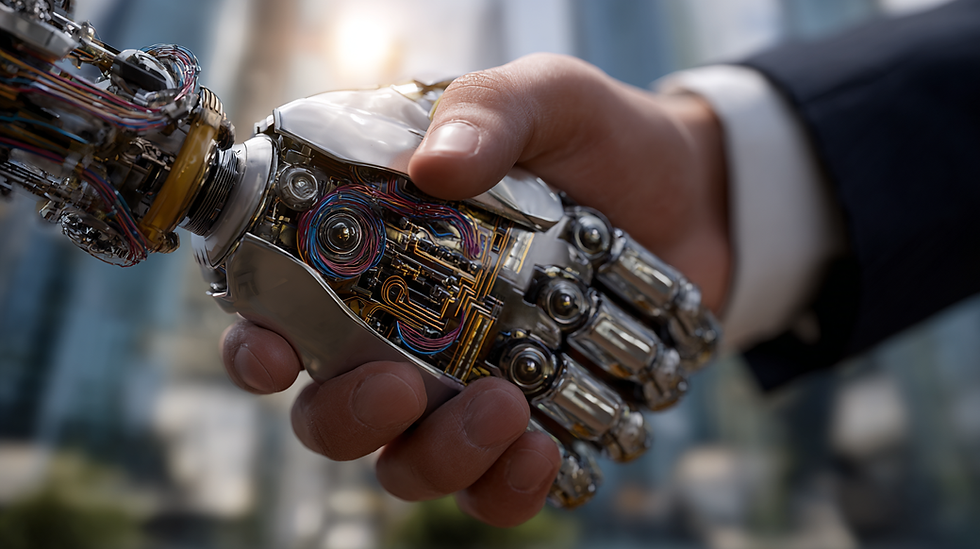Embracing Tomorrow: How AI Redefines Creativity and Transforms Advertising Agencies
- Yo Creative
- 12 באוג׳ 2025
- זמן קריאה 2 דקות
עודכן: 18 באוג׳ 2025
The landscape of creative work is experiencing a major transformation, fueled by rapid advancements in artificial intelligence (AI). As agencies adapt to this new environment, the definition of creativity is evolving, opening up new possibilities and challenges. This blog post explores how AI is reshaping the creative process within advertising agencies. We will highlight how it enhances efficiency and fuels innovation.
The Rise of AI in Creative Work
AI technology is not just a concept of the future; it is actively changing the creative industry today. For example, tools like GPT-3 can generate compelling content and analyze consumer behavior simultaneously. Agencies that want to remain competitive are using these tools to their advantage. By automating repetitive tasks like basic copywriting or data sorting, AI allows creative professionals to concentrate on ideation and storytelling.
With AI, agencies can create high-quality work more quickly than ever. For instance, a report by Deloitte indicates that AI can improve ad campaign efficiency by up to 30 percent. AI-powered tools analyze vast data sets, identifying trends and insights that help creative teams design targeted campaigns that resonate deeply with audiences. This data-driven methodology not only boosts creativity but also ensures that the work is relevant and impactful.

Enhancing Collaboration Between Humans and Machines
One of the most profound changes brought on by AI is in how teams collaborate. Instead of replacing human creativity, AI serves as a strong ally. Creative professionals now have access to tools that assist in brainstorming ideas and generating variations of concepts. For example, Adobe's Creative Cloud leverages AI to provide design suggestions based on the user’s style and preferences. This kind of collaboration leads to a more vibrant creative process where machines enhance human intuition.
Moreover, AI helps agencies optimize workflows. By automating mundane tasks such as image resizing or basic video editing, agencies can allocate more time to strategic initiatives and creative exploration. This increase in focus can boost productivity by over 20 percent and also improve job satisfaction, as creatives take on more rewarding work.
The Future of Creative Roles
As AI technology continues to mature, the roles within advertising agencies are changing significantly. Job descriptions that once focused solely on traditional skills now emphasize technological proficiency. Agencies expect creative professionals to not only excel in art and design but also grasp how to effectively utilize AI tools.
This shift brings an exciting opportunity to cultivate a new generation of creatives who combine artistic talent with technical skills. Offering training programs at the intersection of creativity and technology is becoming crucial. By 2025, reports suggest that nearly 85 million jobs may be displaced, but an estimated 97 million new roles could emerge that emphasize human-AI partnerships.

In summary, the future of creative work is promising, with AI taking on a crucial role in transforming advertising agencies. By embracing this technology, agencies can elevate their creative processes, promote collaboration, and redefine team roles. Moving forward, it will be vital to balance innovation with ethical considerations to keep creativity at the forefront of the industry.